第17章 THE THIRD - INSOMNIA(5)
The Morrice Deans enquiry however demanded an amount of erudition that greatly fatigued the bishop.He had a very fair general knowledge of vestments, but he had never really cared for anything but the poetry of ornaments, and he had to work strenuously to master the legal side of the question.Whippham, his chaplain, was worse than useless as a helper.The bishop wanted to end the matter as quickly, quietly, and favourably to Morrice Deans as possible; he thought Morrice Deans a thoroughly good man in his parish, and he believed that the substitution of a low churchman would mean a very complete collapse of church influence in Mogham Banks, where people were now thoroughly accustomed to a highly ornate service.But Morrice Deans was intractable and his pursuers indefatigable, and on several occasions the bishop sat far into the night devising compromises and equivocations that should make the Kensitites think that Morrice Deans wasn't wearing vestments when he was, and that should make Morrice Deans think he was wearing vestments when he wasn't.And it was Whippham who first suggested green tea as a substitute for coffee, which gave the bishop indigestion, as his stimulant for these nocturnal bouts.
Now green tea is the most lucid of poisons.
And while all this extra activity about Morrice Deans, these vigils and crammings and writings down, were using all and more energy than the bishop could well spare, he was also doing his quiet utmost to keep "The Light under the Altar" ease from coming to a head.
This man he hated.
And he dreaded him as well as hated him.Chasters, the author of "The Light under the Altar," was a man who not only reasoned closely but indelicately.There was a demonstrating, jeering, air about his preaching and writing, and everything he said and did was saturated by the spirit of challenge.He did not so much imitate as exaggerate the style of Matthew Arnold.And whatever was done publicly against him would have to be done very publicly because his book had got him a London reputation.
From the bishop's point of view Chasters was one of nature's ignoblemen.He seemed to have subscribed to the Thirty-Nine Articles and passed all the tests and taken all the pledges that stand on the way to ordination, chiefly for the pleasure of attacking them more successfully from the rear; he had been given the living of Wombash by a cousin, and filled it very largely because it was not only more piquant but more remunerative and respectable to be a rationalist lecturer in a surplice.And in a hard kind of ultra-Protestant way his social and parochial work was not badly done.But his sermons were terrible."He takes a text," said one informant, "and he goes on firstly, secondly, thirdly, fourthly, like somebody tearing the petals from a flower.'Finally,' he says, and throws the bare stalk into the dustbin."The bishop avoided "The Light under the Altar" for nearly a year.It was only when a second book was announced with the winning title of "The Core of Truth in Christianity" that he perceived he must take action.He sat up late one night with a marked copy, a very indignantly marked copy, of the former work that an elderly colonel, a Wombash parishioner, an orthodox Layman of the most virulent type, had sent him.He perceived that he had to deal with a dialectician of exceptional ability, who had concentrated a quite considerable weight of scholarship upon the task of explaining away every scrap of spiritual significance in the Eucharist.From Chasters the bishop was driven by reference to the works of Legge and Frazer, and for the first time he began to measure the dimensions and power of the modern criticism of church doctrine and observance.Green tea should have lit his way to refutation; instead it lit up the whole inquiry with a light of melancholy confirmation.Neither by night nor by day could the bishop find a proper method of opening a counter attack upon Chasters, who was indisputably an intellectually abler man and a very ruthless beast indeed to assail, and meanwhile the demand that action should be taken increased.
The literature of church history and the controversies arising out of doctrinal development became the employment of the bishop's leisure and a commanding preoccupation.He would have liked to discuss with some one else the network of perplexities in which he was entangling himself, and more particularly with Canon Bliss, but his own positions were becoming so insecure that he feared to betray them by argument.He had grown up with a kind of intellectual modesty.Some things he had never yet talked about; it made his mind blench to think of talking about them.
And his great aching gaps of wakefulness began now, thanks to the green tea, to be interspersed with theological dreams and visions of an extravagant vividness.He would see Frazer's sacrificial kings butchered picturesquely and terribly amidst strange and grotesque rituals; he would survey long and elaborate processions and ceremonials in which the most remarkable symbols were borne high in the sight of all men; he would cower before a gigantic and threatening Heaven.These green-tea dreams and visions were not so much phases of sleep as an intensification and vivid furnishing forth of insomnia.It added greatly to his disturbance that--exceeding the instructions of Brighton-Pomfrey--he had now experimented ignorantly and planlessly with one or two narcotics and sleeping mixtures that friends and acquaintances had mentioned in his hearing.For the first time in his life he became secretive from his wife.He knew he ought not to take these things, he knew they were physically and morally evil, but a tormenting craving drove him to them.Subtly and insensibly his character was being undermined by the growing nervous trouble.